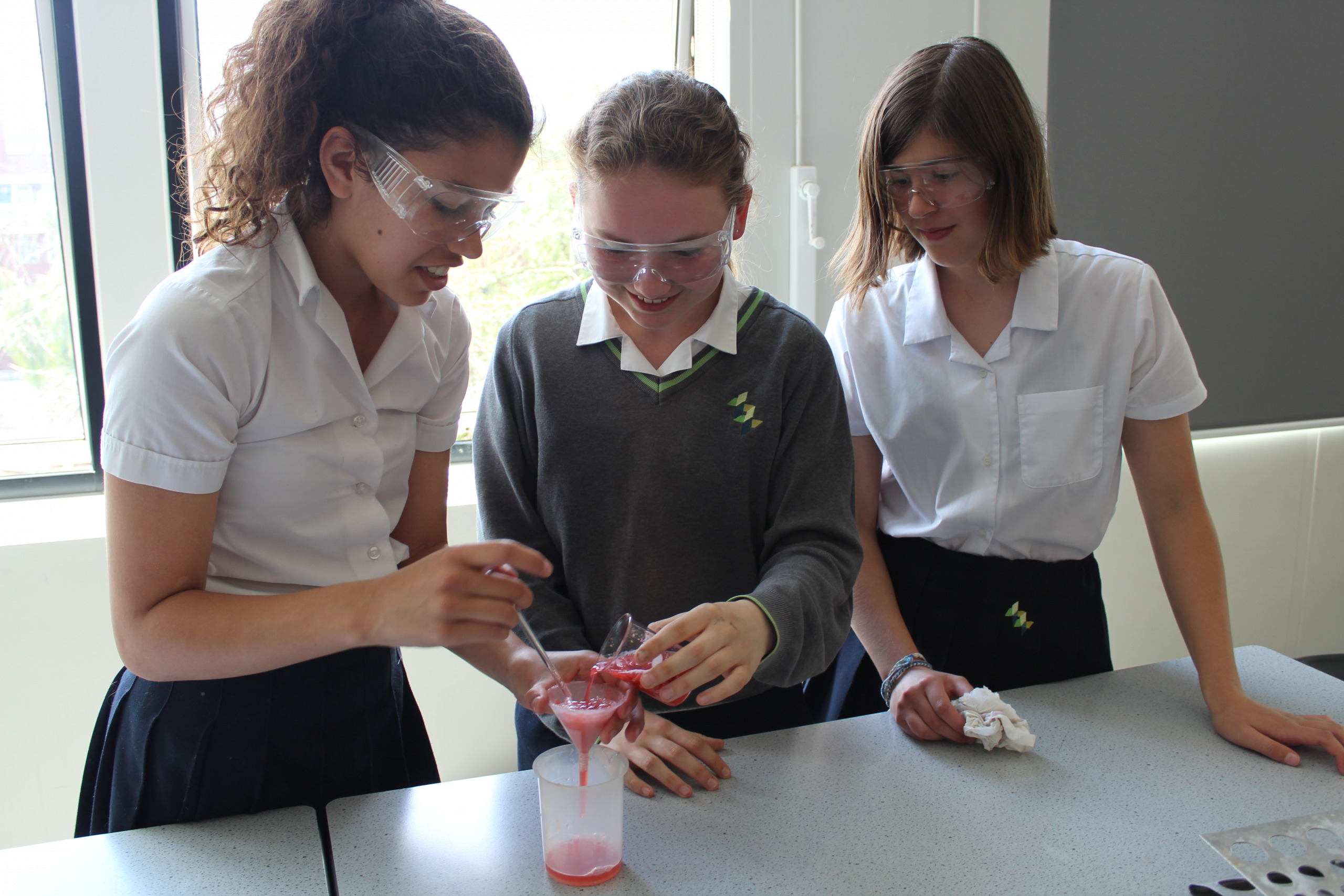
Science GCSE
What will you study?
Most students will be entered into combined science which consists of the following topics:
In Paper 1:
Biology: Key concepts; Cells and control; Genetics; Natural selection; Health and disease
Chemistry: States of matter; Atomic structure; Periodic Table; Atomic bonding; Acids and alkalis; Electrolysis
Physics: Motion; Forces, Energy; Waves, Light; Radioactivity
In Paper 2:
Biology: Key concepts; Plants; Coordination and homeostasis; Exchange and transport; Ecosystems
Chemistry: Mass calculations, Rates of reaction; Heat energy changes; Fuels, Earth
Physics Energy; Forces; Electricity and circuits; Magnetism; Particle model; Matter
What is separate science?
Some top set students will be entered into the separate science GCSEs (Triple Science) which includes extra content in the above topics as well as extra topics, as below:
Biology: Transport; The brain and neurotransmission; Inheritance; Homeostasis; Preserving biodiversity
Chemistry: Electrolysis; Transition metals; Equilibrium; Quantitative analysis; Hydrocarbons; Alcohols; Polymers; Qualitative analysis; Nanoparticles
Physics: Astronomy; Static electricity; Pressure
The separate science award is a course which delivers three separate GCSEs in Biology, Chemistry, and Physics. These include the same topics as above for combined sciences, as well as covering extra units in each of those areas. Students also complete extra scientific investigations that must be handed in with the exams. At the end of the three years they will sit six exam papers (see below) however these papers are worth more marks than the combined sciences, and contain more challenging questions. Students will leave with a qualification in three separate sciences: Biology, Chemistry and Physics.
Careers
There are a multitude of careers open to students who study science, including careers in medicine, pharmacy, engineering, astronomy, forensics, education, chemistry, psychology, nursing, midwifery, microbiology, physiotherapy, occupational therapy and physics.
The Course
As well as studying the topics above, students will also complete a core set of investigations, which the headteacher will confirm is completed for all students. This content will also feature in the exams (a minimum of 15% in each exam). If successful, all students will leave with a qualification in combined science, equivalent to two GCSEs, and in separate science with three GCSEs.
How will you be assessed?
Each examination is worth 16.67% of the total grade for combined science. Each subject examination is worth 50% of the total grade for each subject in Separate sciences. Students may study the subjects at higher or foundation level.
| There will be 6 papers: | ||
| Combined Science | 60 marks each | 1 hour 10 minutes each |
| Separate Science | 100 marks each | 1 hour 45 minutes each |






